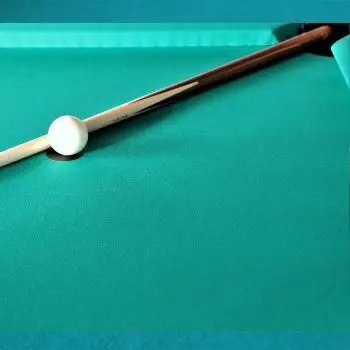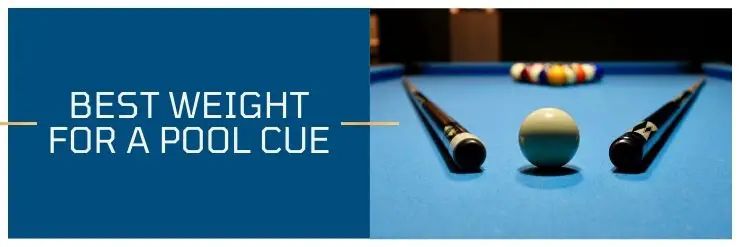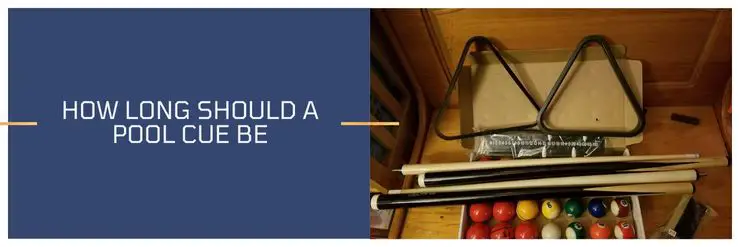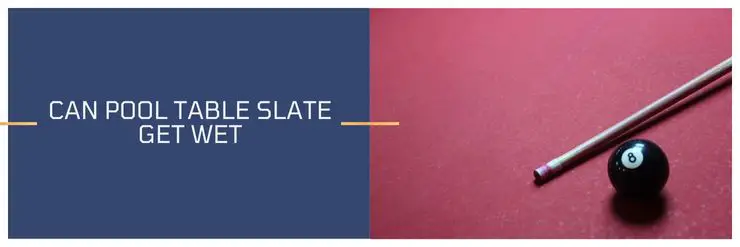As a pool player, you know that having the right weight cue is important. But what is the best weight for a pool cue? And how do you find it?
The most common weight of a pool cue is 19 oz. The weight typically ranges between 18 oz and 21 oz. The best weight for a pool cue is determined by the balance point of the cue and the playing style of the player. Lighter cues typically require more accuracy while heavier cues are more forgiving.
Keep reading to learn more about how to choose the right weight for your pool cue and the difference between a lighter and heavier pool cue!
What is a good weight for a pool cue
Cues typically weigh between 17 and 21 ounces (0.48 and 0.60 kg), with 19 ounces (0.54 kg) being the most common weight.
The weight of a cue can affect the way the cue feels in your hand, as well as the speed and power with which you can hit the ball.
Heavier cues tend to be slower but offer more power, while lighter cues are faster but may be more difficult to control.
Ultimately, the best weight for a pool cue is one that feels comfortable for you to hold and allows you to make the shots you want.
Whether you prefer a heavy or light cue, make sure to experiment with different weights until you find the perfect one for your game.
Are heavier pool cues better
When it comes to playing pool, there are all sorts of different cues that players can choose from. But is there really a difference between a heavy cue and a light cue? And if so, which one is better?
Generally speaking, heavier pool cues tend to be more stable and more forgiving on your shots played.

On the other hand, lighter cues are often considered to be more maneuverable but are less forgiving on your shots.
So which one should you choose? Ultimately, it comes down to personal preference. If you’re looking for stability and accuracy, go with a heavier cue. If you want something that’s easier to control and maneuver around the table, go with a lighter cue.
What weight pool cue do most pros use
When it comes to pool, there are a lot of different factors that can affect your game.
From the type of pool table you’re playing on to the quality of your pool cue, each element can make a difference in your performance.
One common question that arises is what weight pool cue do most pros use?
In general, pro pool players will choose a lighter pool cue over a heavier one, usually around the 19oz weight.
While there is no one-size-fits-all answer to this question, most pros tend to use a cue at this weight.
Lighter cues require a little more finesse than heavier ones but provide more control.
Ultimately the best cue weight for you is the one that feels comfortable in your hand and allows you to play your best game.
How to find the pool cue balance point
When you start to take the game to the next level, its important to know your cue’s balance point, rather than your preferred cue weight. Keeping to the same balance point will help you become more consistent and accurate.
Finding the balance point of a cue is relatively simple.
To find the balance point of your cue, simply balance your cue on your index finger. The place where your index finger balances the cue is your cues balance point.
You can use this point as a reference for the balance point of that cue.
Gripping the cue at least six inches away from the balance point toward the butt end of the cue stick is recommended.
Always keeping a consistent grip six inches away from the balance point of the cue will help keep your shops more consistent and accurate.
Is it better to have a lighter or heavier pool cue
It’s a debate as old as pool itself: is it better to have a lighter or heavier pool cue?
There are pros and cons to both choices, and ultimately it comes down to personal preference.
A lighter cue is easier to control but can be less forgiving if you don’t make a perfect shot.
On the other hand, a heavier cue is more cumbersome but can be more accurate.
I would say beginners find playing pool with heaver pool cues easier. The most important thing is to use a cue that you feel comfortable with.
If you just want to pick a cue because you think it will help you generate more power, its not completely true that a heavier cue will help you achieve this.
The power of your shot is determined by the velocity that you propel the cue and less by the weight of the cue.
Can you change the weight of a pool cue
Have you ever wondered if you can change the weight of a pool cue? The answer is yes! You can actually adjust the weight of your cue by adding or removing weight from the butt.
Not all cues have this feature so you will need to check beforehand. You will also need tp check why type of weight bolts your cue takes as different cue manufacturers use different types of weight bolts.
If you find your cue needs adjusting, for example, if you want a heavier cue, you can add weight bolts to the butt.
If you want a lighter cue, you can remove some of the weight.
So, if you’re not happy with the weight of your cue, don’t be afraid to experiment until you find the perfect balance for your game.
Conclusion
So, What is the best weight for a pool cue? There is no definitive answer as to whether a heavier cue or a lighter cue is better when playing pool. It comes down to what the player prefers and what they feel most comfortable using. Heavier cues are more stable and forgiving on shots, while lighter cues are easier to control and maneuver around the table.
Just as important as cue weight is knowing where the cue is balanced, this is something many people neglect but in the long run it will improve you as a player.
Ultimately, it is up to the individual player to decide which weight works best for them.
Rob is an avid player and fan of all cue sports, particularly 8-ball, and snooker. He has competed in a few local 8-ball tournaments and although he is not a professional, he can compete with the best of them.






